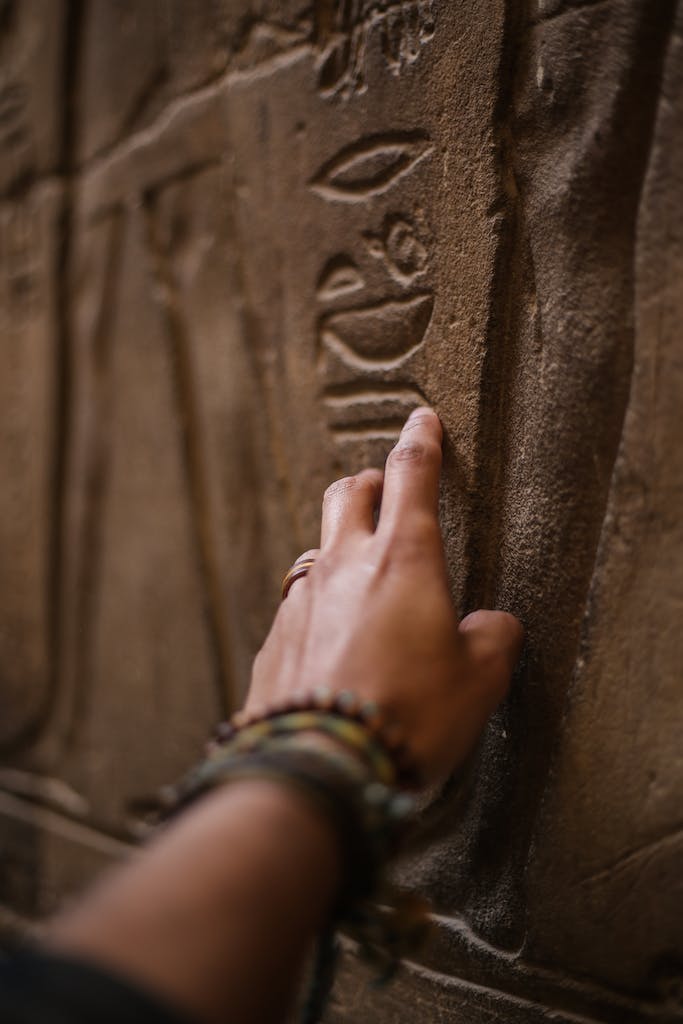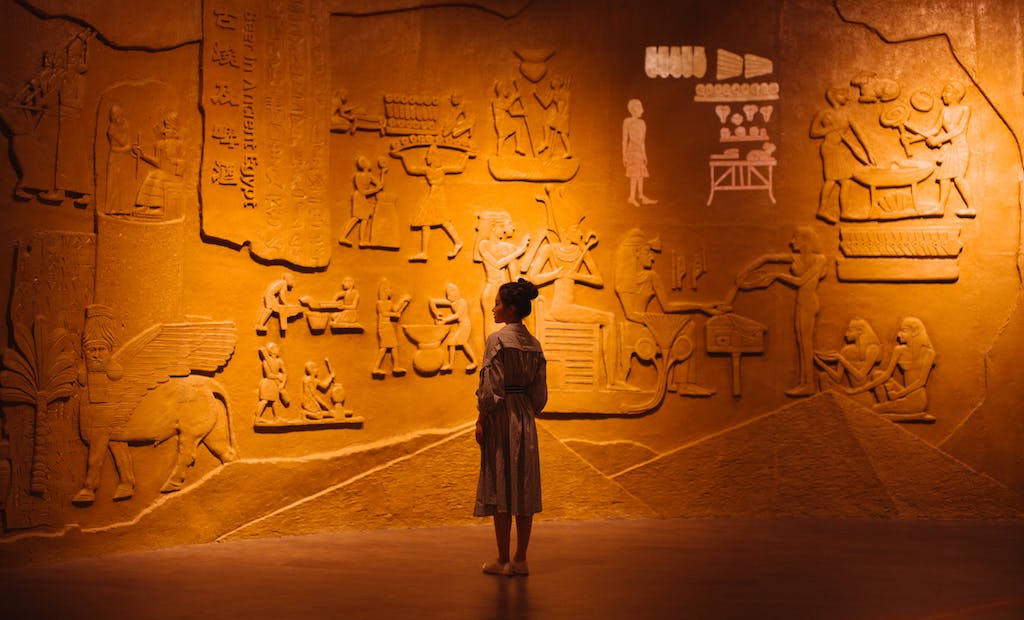Types of Anthropology
Anthropology is a broad discipline that studies all aspects of humankind. As a holistic field, the types of anthropology examines the interplay between human biology, society, culture, languages, artifacts, and evolution.
There are four main subfields within anthropology that each take a specialized lens on human life. These branches include cultural anthropology, archaeology, biological/physical anthropology, and linguistic anthropology.
While distinct, the subfields share the common aim of analyzing the human experience from past to present. Their research methods, subjects of analysis, and career pathways differ based on what facet of humanity they investigate.
Cultural Anthropology

Cultural anthropology, one of the types of anthropology, focuses on the study of human culture and society in the contemporary world and the recent past. This branch attempts to document and understand the enormous diversity found across human groups, from small bands to modern nations.
Cultural anthropologists examine topics like social roles, traditions, institutions, political systems, subsistence patterns, religions, arts, and more. They seek to understand how culture shapes the beliefs, behaviors, and experiences of different groups.
Research
Research within cultural anthropology relies heavily on ethnography and participant observation. This involves in-depth observation and data gathering within a living community. Other methods can include surveys, interviews, mapping, statistical analysis, and comparison across different cultures. Cultural anthropologists’ work has applications in many fields.
Careers
Careers can be found in areas like cultural resource management, museum curation, multicultural community planning, international development, and human rights advocacy.

Archaeology
Archaeology concentrates on studying past human societies and cultures through excavation and material remains. Archaeological research draws on artifacts, structures, biofacts, and other physical evidence to reconstruct and understand life in earlier eras.
Archaeologists focus on topics like technology, economy, trade, migration, political organization, social ranking, ideologies, and relationships between human groups and environments. Their work tracks cultural change from our earliest human ancestors to more recent eras.
Research
Field methods in archaeology include controlled excavation, spatial mapping sites, dating techniques, aerial scanning, and systematic recovery and recording of objects and samples. Archaeologists also rely heavily on laboratory analysis to obtain data from excavated materials.
Careers
Common career pathways include cultural resource management, museum work, site curation, heritage conservation and management, and tourism planning. Archaeology provides insight into the vast sweep of human prehistory and history.

Biological/Physical Anthropology
Biological anthropology, also called physical anthropology, focuses on studying humans as biological organisms. This branch is centered on human evolution and change over time, genetics, primatology, biomechanics, and modern human biological diversity.
Biological anthropologists work to trace human origins, migration patterns, selective pressures, disease histories, and relationships to other organisms like primates. They examine how human biology enables cultural and behavioral diversity.
Research
Methods in biological anthropology include osteological measurement, DNA and genetic analysis, the study of living humans across populations, epidemiology, primatology fieldwork, and more. Many biological anthropologists interact with the medical community, too.
Careers
Career paths include forensic anthropology, genetic counseling, public health policy and epidemiology, university research and teaching, non-profit public education, and primate conservation. This subfield provides a biological context for understanding humankind.
Linguistic Anthropology
Linguistic anthropology revolves around the study of language, communication, and culture. Researchers in this interdisciplinary branch examine how language shapes culture and vice versa.
Their topics of study can cover language origins, evolution, acquisition across cultures, structural analysis, ethnography of speaking, multilingualism, and the cultural contexts of communication. Linguistic anthropologists document and describe languages around the world, many endangered.
Research
Linguistic anthropologists use qualitative methods like interviewing, discourse analysis, and ethnographic observation within communities of speakers. Language documentation to support minority groups is also important.
Careers
Careers for linguistic anthropologists often involve education, language preservation, international cultural relations, and technology. Understanding human language provides insight into cognition, cooperation, and social life.

Emerging Subfields
Alongside the main branches, there are new hybrid types of anthropology emerging within anthropology as it continues to evolve. Examples include:
- Medical anthropology, which concentrates on health, illness, and healing from a biological and cultural lens.
- Digital anthropology utilizes internet culture to study how technology shapes humanity today.
- Environmental anthropology looks at relationships between humans, nature, and environmental change over time.
Each emerging specialty allows deeper investigation into aspects of the human experience using an anthropological framework.
Conclusion
The different types of anthropology provides a holistic, four-field approach to studying humankind across biology, society, culture, and language. The main branches include cultural anthropology, archaeology, biological/physical anthropology, and linguistic anthropology.
Researchers in each subfield contribute diverse and complementary data using fieldwork, qualitative evaluation, and scientific analysis. Anthropology offers many potential career paths that allow professionals to apply their interests and skills to understanding humanity.
With expansive research subjects, questions, and specializations, the field provides insights into all facets of the human story over time and into the future. Anthropology continues to diversify and evolve while maintaining the comprehensive perspective that makes it unique.
Here’s a video I made about the anthropology degree:
Frequently Asked Questions About the Types of Anthropology Degrees
What are the 4 types of anthropology?
The 4 main branches or subfields within anthropology are cultural anthropology, archaeology, biological/physical anthropology, and linguistic anthropology. Each of these types takes a specialized lens to study different aspects of human culture, society, biology, evolution, genetics, language, communication, artifacts, and more. While distinct, they share the common aim of analyzing humanity from a holistic perspective.
Who is the father of anthropology?
The German-American scholar Franz Boas is often regarded as the seminal “father of anthropology.” He pioneered the discipline in the late 1800s to early 1900s. Boas advocated for rigorous fieldwork methods and cultural relativism over racial biases. His contributions include shaping cultural anthropology, ethnography, linguistics, folklore studies, and more. Boas established anthropology departments and trained many early anthropologists. He revolutionized the discipline by demonstrating culture’s impact on human biology and behavior. Boas elevated cultural diversity and relativity in anthropological research.
When did anthropology start?
Anthropology began emerging as a distinct field of study in the early 1590s, as some of the first scholars and academics started shaping it into a formal science and profession. In England, early anthropologists were influenced by colonial encounters with different cultures. They started classifying human groups systematically while debating the nature of humanity and society. Museums and learned societies helped grow interest in studying groups globally.
What was the first study of early anthropologists?
Some of the first and foundational studies of early anthropologists focused on cataloging the extensive physical diversity found across human populations around the world. Early scholars studied topics like indigeneity, race, social customs, cultural practices, kinship patterns, language diversity, spiritual beliefs, and social organization systems, making detailed comparisons across cultures.
Are anthropologists still useful today?
Yes, anthropologists today continue to produce extremely useful research and insights about humankind! Contemporary anthropology uncovers new knowledge about ancient cultures, modern societies, linguistics, forensics, genetics, human health, social issues, environmental change, the impact of technology, and more. Anthropology keeps evolving as a discipline but maintains its holistic, humanistic perspective on understanding humanity over time.

… [Trackback]
[…] Read More here on that Topic: shanehummus.com/college-degrees/anthropology-types/ […]
… [Trackback]
[…] Here you can find 85511 more Info to that Topic: shanehummus.com/college-degrees/anthropology-types/ […]
… [Trackback]
[…] Read More here to that Topic: shanehummus.com/college-degrees/anthropology-types/ […]
… [Trackback]
[…] Find More to that Topic: shanehummus.com/college-degrees/anthropology-types/ […]
… [Trackback]
[…] Read More on on that Topic: shanehummus.com/college-degrees/anthropology-types/ […]
… [Trackback]
[…] Find More on that Topic: shanehummus.com/college-degrees/anthropology-types/ […]
… [Trackback]
[…] Here you will find 99626 more Info on that Topic: shanehummus.com/college-degrees/anthropology-types/ […]
… [Trackback]
[…] Find More on on that Topic: shanehummus.com/college-degrees/anthropology-types/ […]
… [Trackback]
[…] Here you can find 4715 more Info to that Topic: shanehummus.com/college-degrees/anthropology-types/ […]
… [Trackback]
[…] Find More on on that Topic: shanehummus.com/college-degrees/anthropology-types/ […]
… [Trackback]
[…] There you can find 62724 additional Info to that Topic: shanehummus.com/college-degrees/anthropology-types/ […]
… [Trackback]
[…] Information on that Topic: shanehummus.com/college-degrees/anthropology-types/ […]
… [Trackback]
[…] Read More to that Topic: shanehummus.com/college-degrees/anthropology-types/ […]
… [Trackback]
[…] Read More Info here on that Topic: shanehummus.com/college-degrees/anthropology-types/ […]
… [Trackback]
[…] Here you can find 27568 more Info to that Topic: shanehummus.com/college-degrees/anthropology-types/ […]
… [Trackback]
[…] Find More here to that Topic: shanehummus.com/college-degrees/anthropology-types/ […]
… [Trackback]
[…] There you can find 4427 more Info on that Topic: shanehummus.com/college-degrees/anthropology-types/ […]
… [Trackback]
[…] Info on that Topic: shanehummus.com/college-degrees/anthropology-types/ […]
… [Trackback]
[…] Read More on on that Topic: shanehummus.com/college-degrees/anthropology-types/ […]
… [Trackback]
[…] Find More Information here to that Topic: shanehummus.com/college-degrees/anthropology-types/ […]
… [Trackback]
[…] Read More on that Topic: shanehummus.com/college-degrees/anthropology-types/ […]
… [Trackback]
[…] Find More on to that Topic: shanehummus.com/college-degrees/anthropology-types/ […]
… [Trackback]
[…] Read More Info here to that Topic: shanehummus.com/college-degrees/anthropology-types/ […]
… [Trackback]
[…] Find More on that Topic: shanehummus.com/college-degrees/anthropology-types/ […]
… [Trackback]
[…] Read More Info here on that Topic: shanehummus.com/college-degrees/anthropology-types/ […]
… [Trackback]
[…] Read More Info here on that Topic: shanehummus.com/college-degrees/anthropology-types/ […]
… [Trackback]
[…] Find More here to that Topic: shanehummus.com/college-degrees/anthropology-types/ […]
… [Trackback]
[…] Find More Info here on that Topic: shanehummus.com/college-degrees/anthropology-types/ […]
… [Trackback]
[…] There you can find 37668 additional Info on that Topic: shanehummus.com/college-degrees/anthropology-types/ […]
… [Trackback]
[…] Find More to that Topic: shanehummus.com/college-degrees/anthropology-types/ […]
… [Trackback]
[…] Find More Information here on that Topic: shanehummus.com/college-degrees/anthropology-types/ […]
… [Trackback]
[…] Information on that Topic: shanehummus.com/college-degrees/anthropology-types/ […]
… [Trackback]
[…] Find More on that Topic: shanehummus.com/college-degrees/anthropology-types/ […]
… [Trackback]
[…] Here you will find 26228 additional Info on that Topic: shanehummus.com/college-degrees/anthropology-types/ […]
… [Trackback]
[…] Find More here to that Topic: shanehummus.com/college-degrees/anthropology-types/ […]
… [Trackback]
[…] There you can find 27463 additional Info to that Topic: shanehummus.com/college-degrees/anthropology-types/ […]